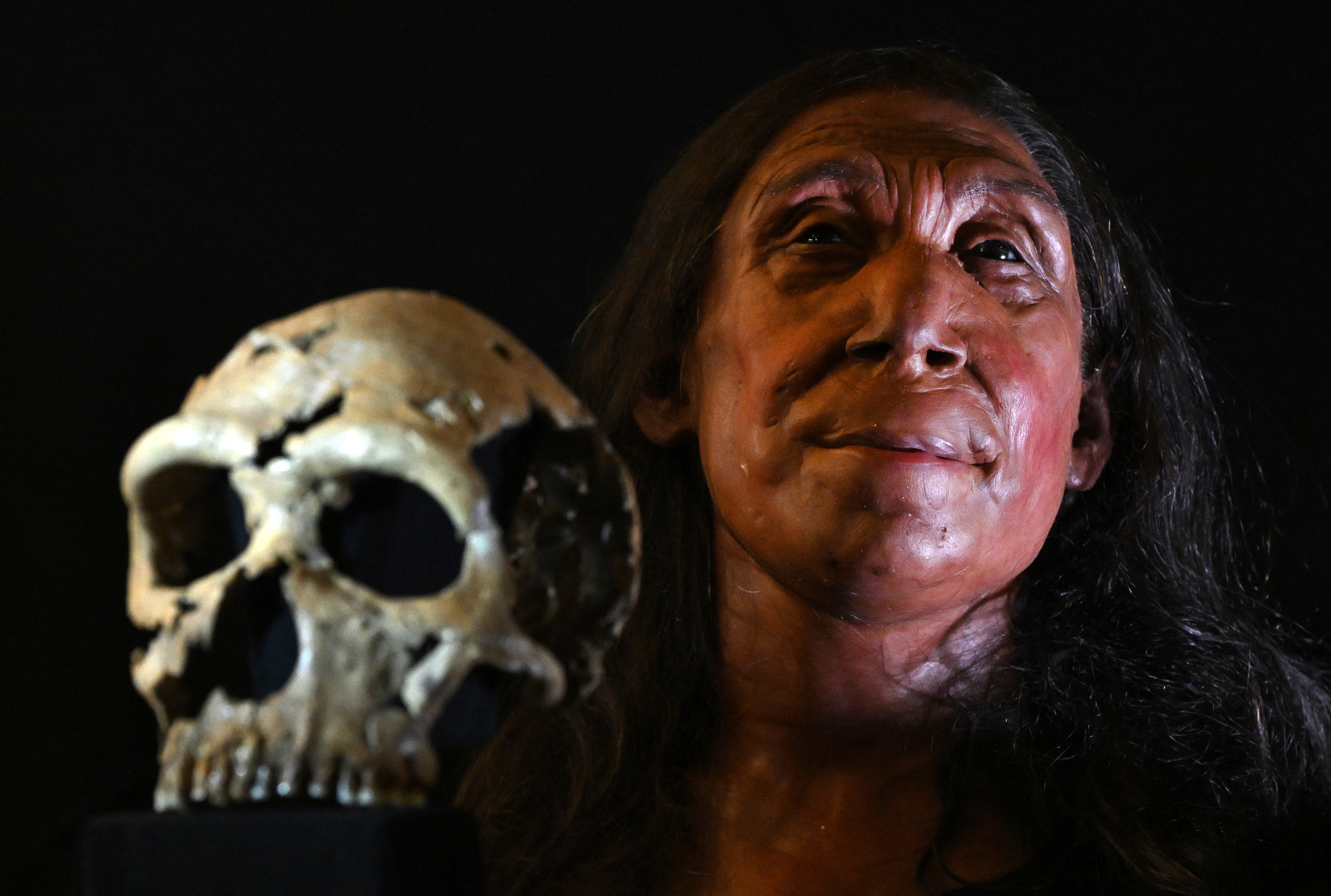Climate change is real and its effects are transforming our lives, even if we don't realize it.
The phenomenon is impacting our health, our safety and our economy, which is why several communities have already begun to adapt and explore mechanisms to protect the environment and themselves.
Scientists agree that the main cause of climate change is human activities, especially the burning of fossil fuels such as coal, oil and natural gas. These fuels release greenhouse gases into the atmosphere.
"We are mainly seeing an increase in the temperature of both the land surface and the ocean," explained Edil Sepúlveda, a NASA engineer.
We're making it easier for you to find stories that matter with our new newsletter — The 4Front. Sign up here and get news that is important for you to your inbox.
Over the last decade, Earth has recorded a steady rise in temperatures, to the point that 2023 was a record year with the warmest temperatures since records began in the mid-1800s.
To give a real and complete picture of climate change and how it is transforming daily life, Telemundo stations worked on this original documentary "Nuestro Planeta: Voces del Cambio Climático" ("Our Planet: Voices of Climate Change").
REGENERATIVE AGRICULTURE, THE SOLUTION?
U.S. & World
The day's top national and international news.
In the face of climate change, regenerative agriculture is emerging as a hopeful method to ensure food security and is already being implemented in many U.S. crops.
"It's very important to adapt to climate change and to help and promote the sustainability of sustainable production…and do my part to combat the effects of climate change," said Fabricio Prico, an agronomist at Rio Grande Valley College.
Regenerative agriculture and livestock farming incorporate techniques including crop rotation and soil cover. It requires less machinery and energy, translating into a smaller carbon footprint.
The key is to always keep the soil alive, which translates into better quality produce and, most importantly, limiting greenhouse gas emissions.
"Everyone wants to eat more beef or chicken and all that production is associated with the production of greenhouse gases," said Alexis Racelis, professor of Environmental and Land Studies at the University of Rio Grande Valley.
CLIMATE CHANGE AND HISPANICS
In charge of one of the most relevant 2023 studies was Edil Sepúlveda, a Puerto Rican engineer who is the senior research scientist at NASA's Goddard Space Flight Center.
After the devastation of Hurricane Maria in Puerto Rico, part of his work focused on disaster recovery and resilience, according to his NASA bio page.
Sepúlveda talked about the reasons for increasing temperatures in an interview with Telemundo Stations Group.
"They were due to natural changes on planet Earth, many of them due to small changes in the Earth's orbit around the Sun. Others had to do with significant volcanic eruptions… or, for example, the fall of an asteroid or comet," Sepúlveda said.
In Alaska, Telemundo stations met Samarys Seguinot Medina, a Puerto Rican environmental researcher at the Arctic Pole.
She has led important efforts to understand climate change and protect vulnerable communities.
"This is a real problem… I honestly feel that a decision needs to be made at the governance level," Seguinot Medina said.
In California, there are workers like Carlos Contreras, who has spent a lifetime doing the important work of harvesting food and now, he says, has begun to see losses because the heat destroys the crops.
Fausto Sánchez is a representative of the organization Asistencia Legal Rural de California. As part of his work, he tours farmland to monitor the welfare of workers and make sure they are not exposed to extreme heat conditions.
Students at the University of Texas Rio Grande Valley are also looking for solutions to minimize the effects of climate change.
"I am very proud of the work we are doing because we are starting with a group of students and maybe in the future we will be able to develop technologies that we can use globally," said Fabricio Prico, agronomist at the University of Texas Rio Grande Valley.
FROM INVESTMENT TO REJECTION: US POLICY ON CLIMATE CHANGE
United States policy on the climate crisis has depended on the political party occupying the White House.
After landmark agreements signed by former President Barack Obama, former President Donald Trump was quick to call the issue a sham and withdrew the U.S. from the 2015 Paris Agreement, a pact of 200 countries aimed at mitigating climate change.
Now, President Joe Biden has called the crisis the No. 1 problem facing humanity.
Under his administration, the U.S. rejoined the Paris Agreement and dozens of laws have been signed to allocate funds in the hundreds of millions of dollars to reduce the burning of fossil fuels.
The Biden administration's plan focuses on three components: encouraging the production of more affordable electric vehicles; enacting legislation to limit greenhouse gas pollution; and investing in mitigation projects in the most vulnerable communities across the country and around the world.
Heading into the upcoming election in November, climate change could be an important issue for U.S. residents.
Yale University research in 2023 found that 72% of respondents believe global warming is occurring and 70% fear it will hurt future generations.
Of those surveyed, 55% believe the issue should be a priority for the next president and Congress.
CLIMATE CHANGE, A RACE AGAINST TIME
Signs of climate change are already visible on our planet, such as devastating fires, powerful hurricanes, rising sea levels and melting at the poles.
According to the National Oceanic and Atmospheric Administration (NOAA), sea level rise has accelerated from 1.7 mm/year during most of the 20th century to 3.2 mm/year since 1993.
But as time marches on, the time frame we have to respond is shortening.
According to the United Nations, the average global temperature of planet Earth is about 1.1 degrees Celsius (2.8 degrees Fahrenheit) higher than that recorded in 1800.
"We are at a very important moment in which we all have to do our bit and take action," Sepúlveda said.
HOW TO CURB CLIMATE CHANGE
The answer is complex but the biggest change will be seen if we reduce our carbon footprint.
Some countries and large companies are major contributors to emissions that cause climate change, so changes in government and private policies will be key.
The most important thing would be to switch from fossil fuel energy systems to renewable energies such as solar or wind, according to the United Nations.
Moreover, there are no small actions and change can start with ourselves. Here are some recommendations from the Environmental Protection Agency (EPA):
- Buy products with the "ENERGY STAR" certification label.
- Reduce food waste by buying only what you need, composting food scraps and donating what you don't use.
- Buy used items and donate what you no longer use.
- Change your vehicle to an electronic one or walk, use bicycles or the public system.
- Take shorter showers.
- Plant trees whenever you can.



